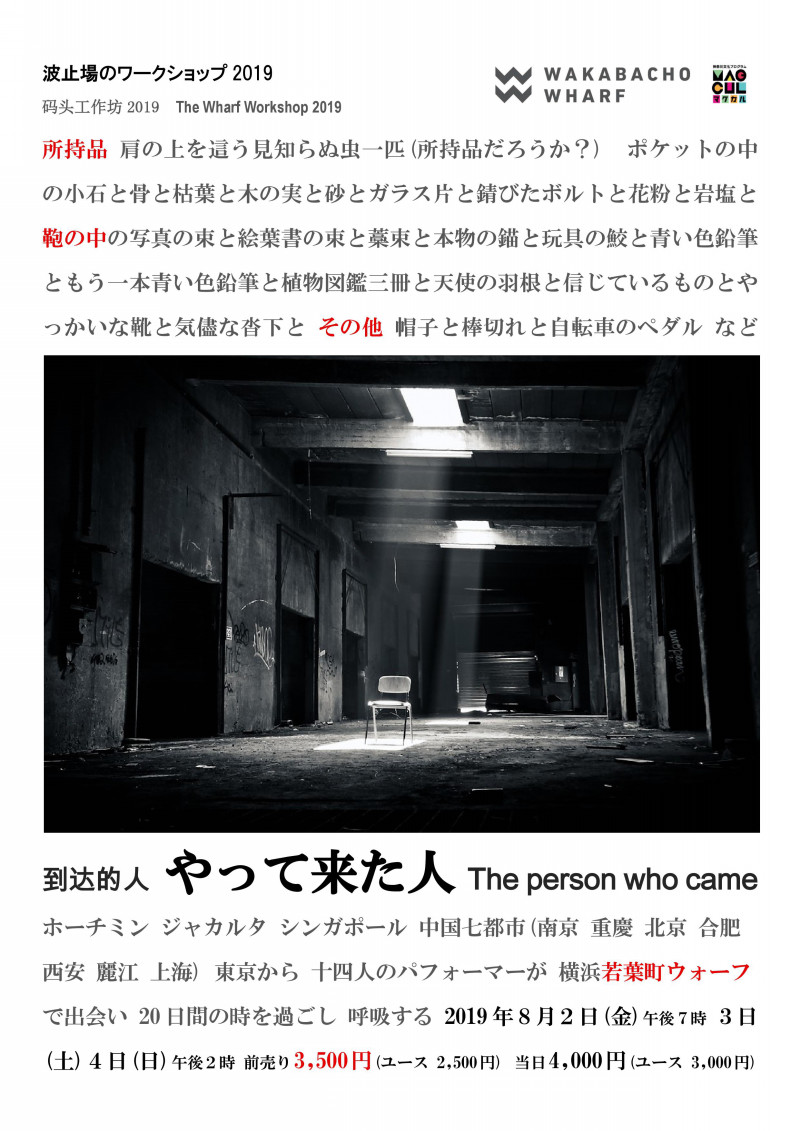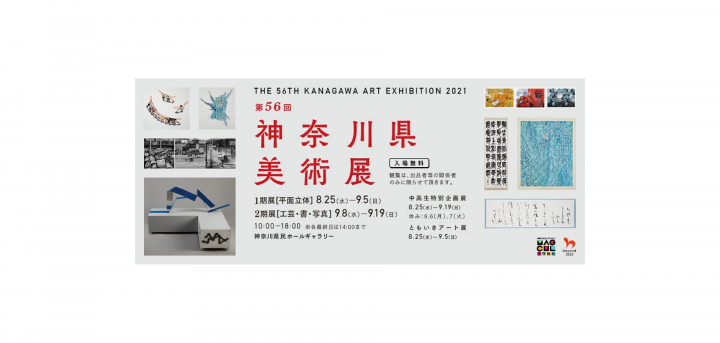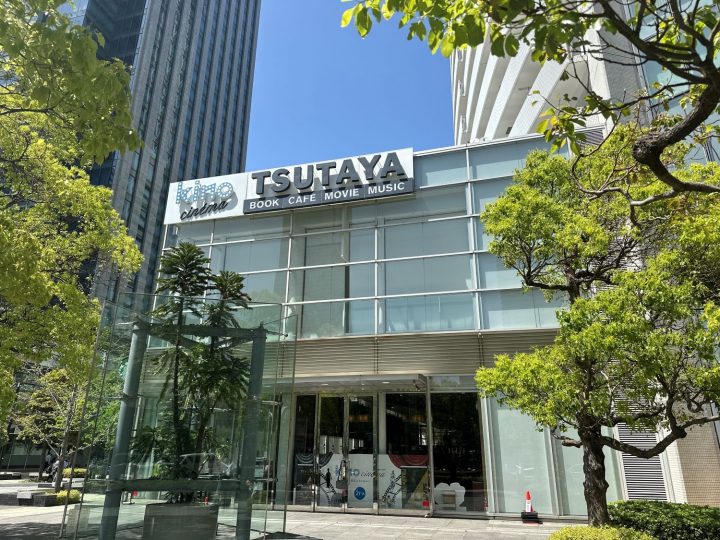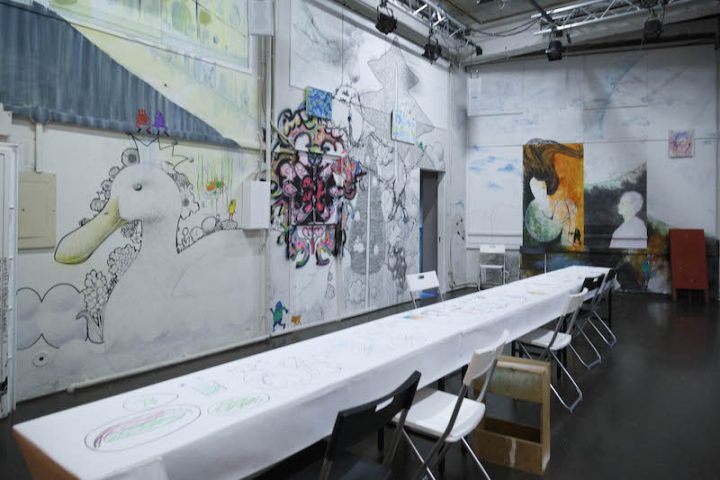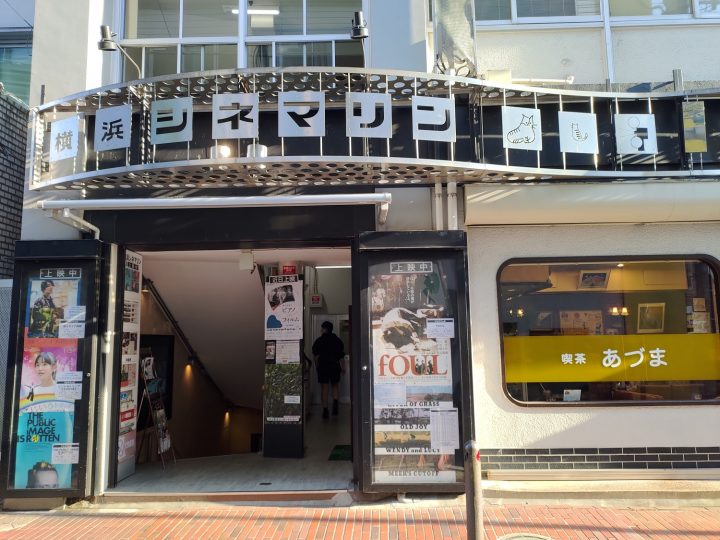This year, there are 14 participants from 5 countries. See where the pier workshop leads!
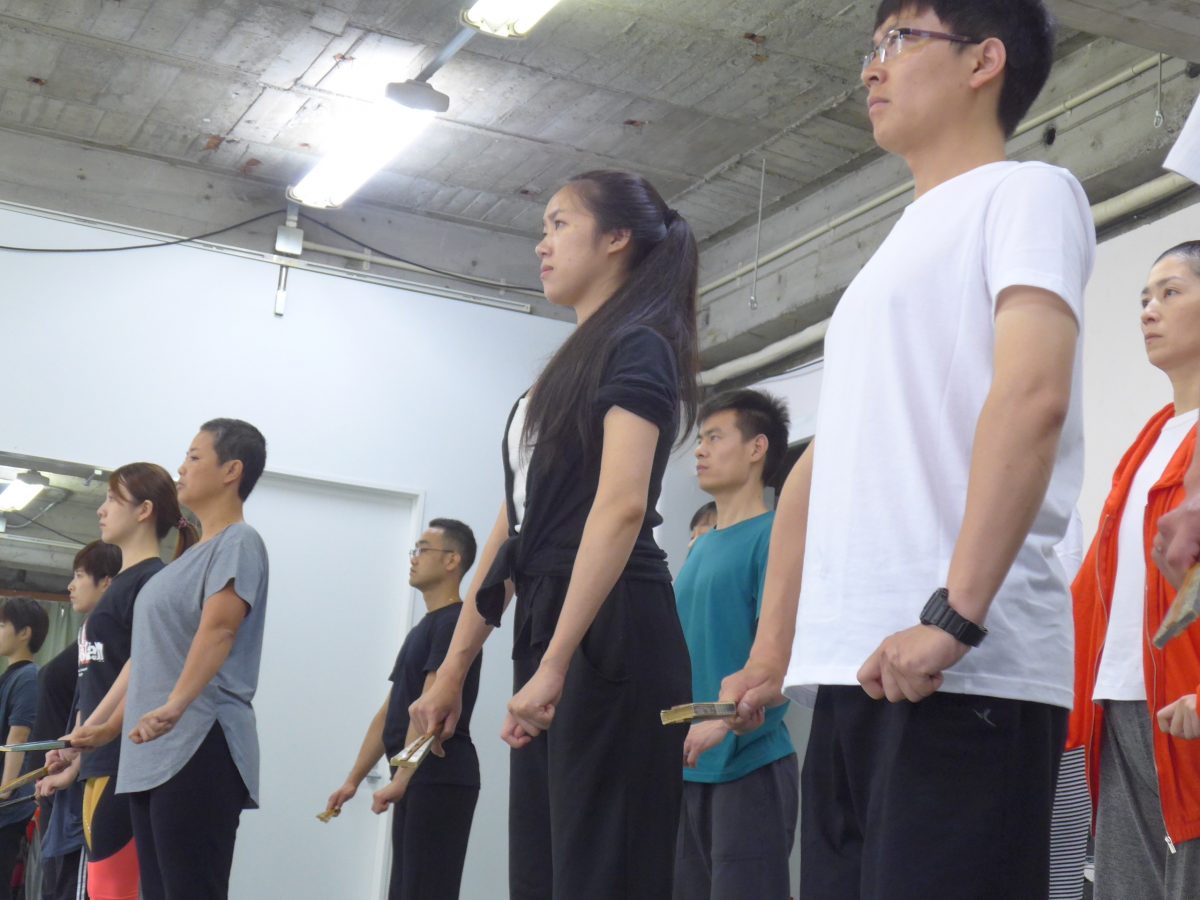
A world of art to visit, see and feel
File.16 Wharf Workshop 2019
Miyuki Inoue (Magcal Editorial Department)
The dockside workshop has started again this year.
The venue is Wakabacho Wharf, an art center that opened in 2017.
The 14 performers are from Ho Chi Minh City, Jakarta, Singapore, Nanjing, Chongqing, Beijing, Hefei, Xi'an, Lijiang, Shanghai and Tokyo.
The training program is extremely diverse, with Wakabacho Wharf artistic director Makoto Sato himself serving as lecturer, and also includes workshops by butoh dancers and Noh performers, lectures by theater critics, and even theater productions and facility tours.
They will spend 20 days here working on their piece, living and eating together.
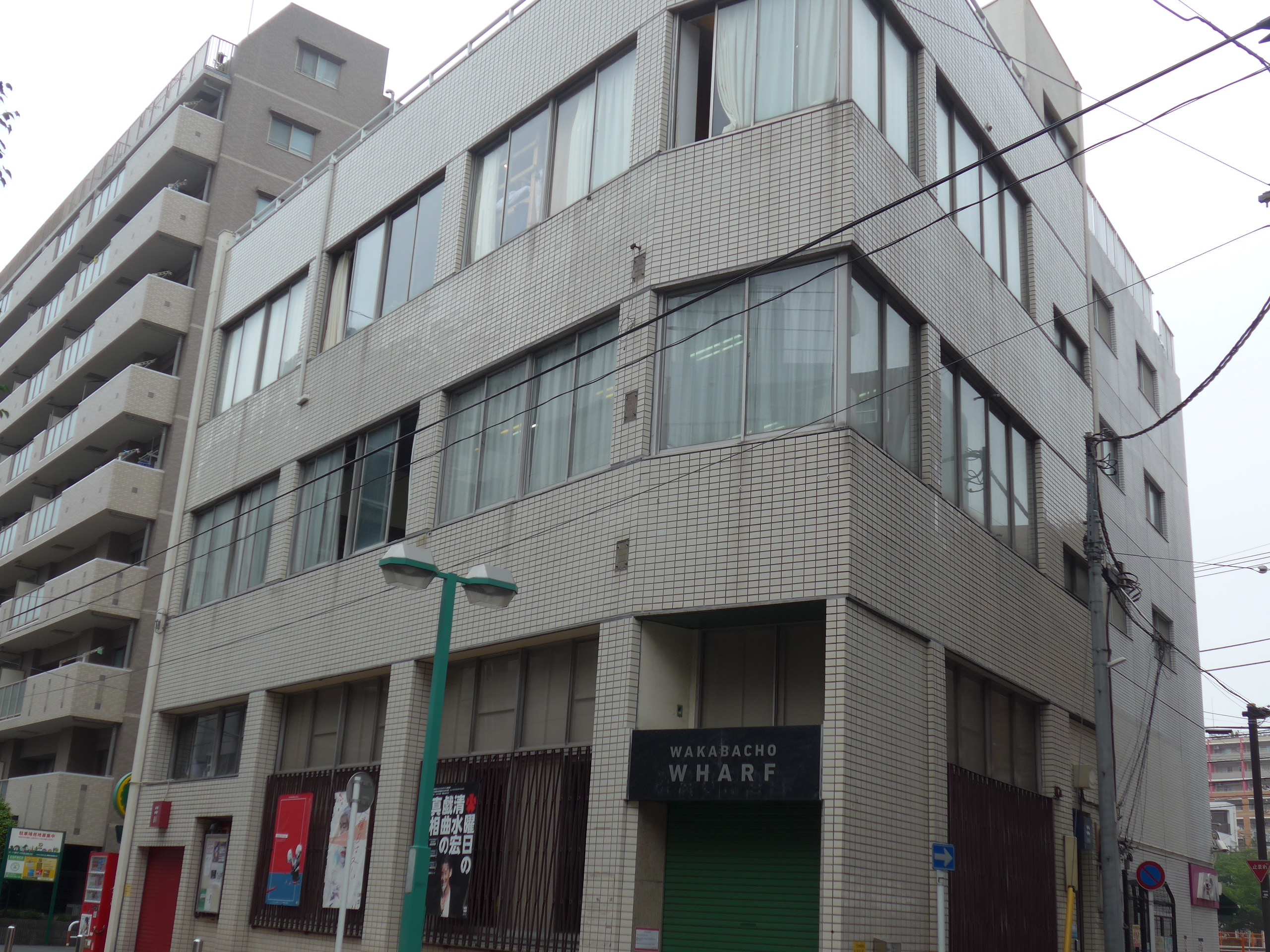 But before that.
But before that.The first challenge participants face is communication. Although English and Chinese interpreters are provided for the workshop, in order for everyone to work together to create a single piece of work, it's important to use the full time they have to understand each other. If they stay holed up in their rooms, they won't be able to move the conversation forward. They have to communicate somehow, making full use of gestures and translation software on their smartphones.
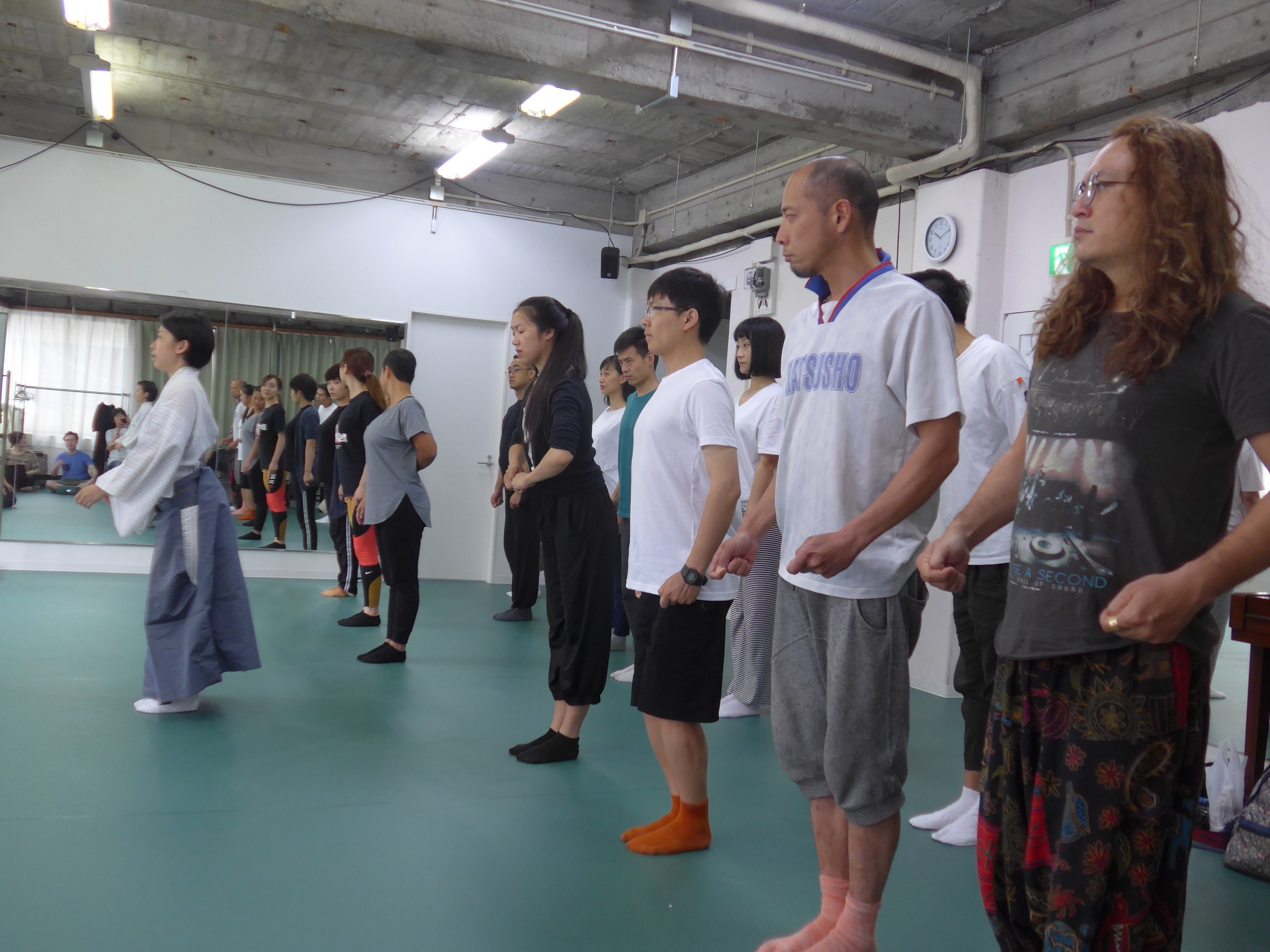 On the day we visited the rehearsal studio, a workshop was being held by Uzawa Hikaru (Kanze School Noh actor/Tetsusenkai). The theme was "Noh Movement." We learned the basic form one by one, including the unique standing posture and movement (suriashi).
On the day we visited the rehearsal studio, a workshop was being held by Uzawa Hikaru (Kanze School Noh actor/Tetsusenkai). The theme was "Noh Movement." We learned the basic form one by one, including the unique standing posture and movement (suriashi).Noh is sometimes described as the "art of walking," so perhaps learning this basic posture is the same as getting closer to the spirit of Noh.
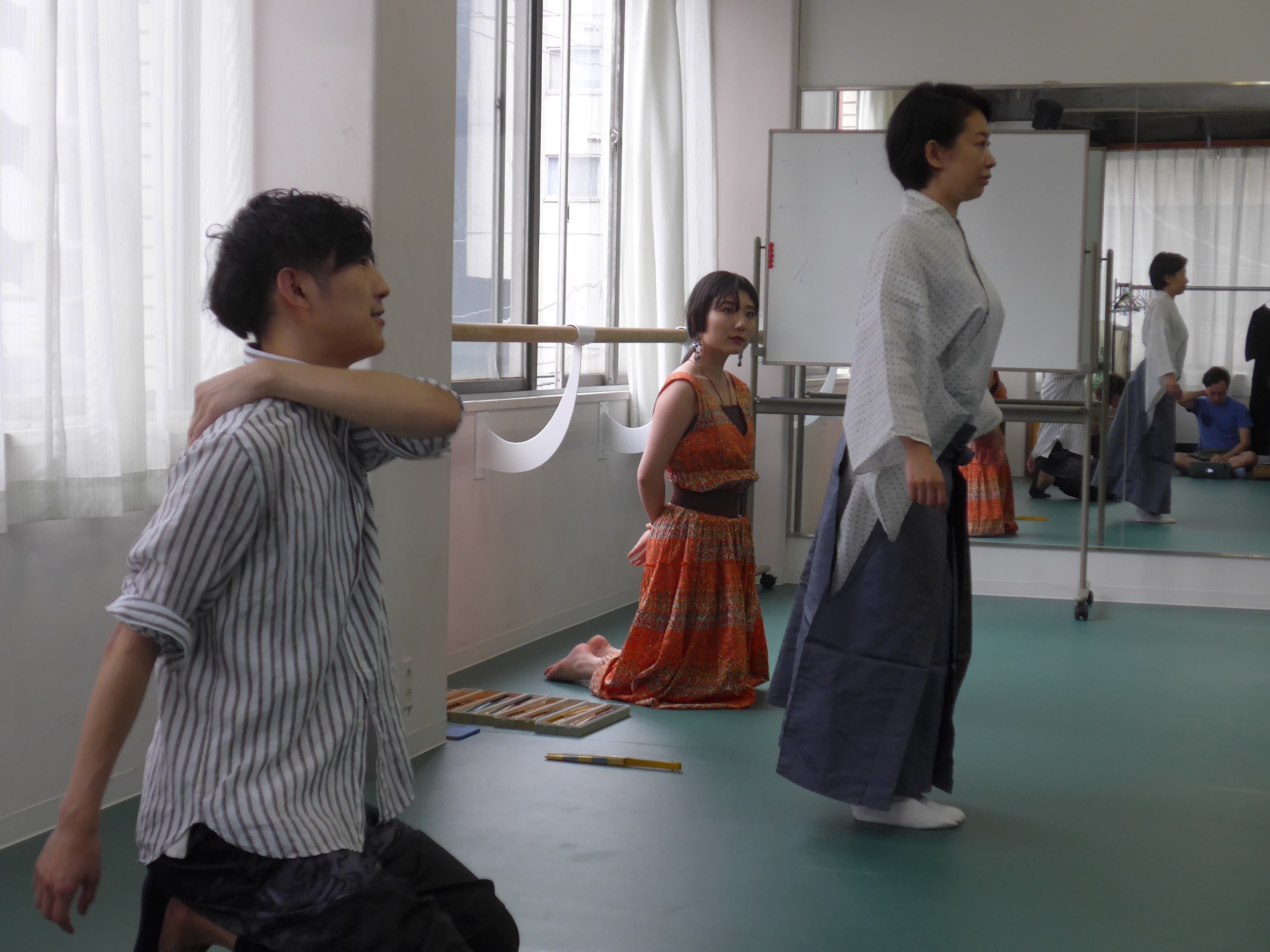 At the rehearsal hall, the instructor's words are followed by English and Chinese. What is surprising is the amount of words the interpreter uses. Simply replacing words would not convey what the instructor is trying to say, so adding supplementary information and alternative expressions inevitably results in a lot of words. Of course, gestures are also used to the fullest.
At the rehearsal hall, the instructor's words are followed by English and Chinese. What is surprising is the amount of words the interpreter uses. Simply replacing words would not convey what the instructor is trying to say, so adding supplementary information and alternative expressions inevitably results in a lot of words. Of course, gestures are also used to the fullest.Well, interpretation is an art in itself.
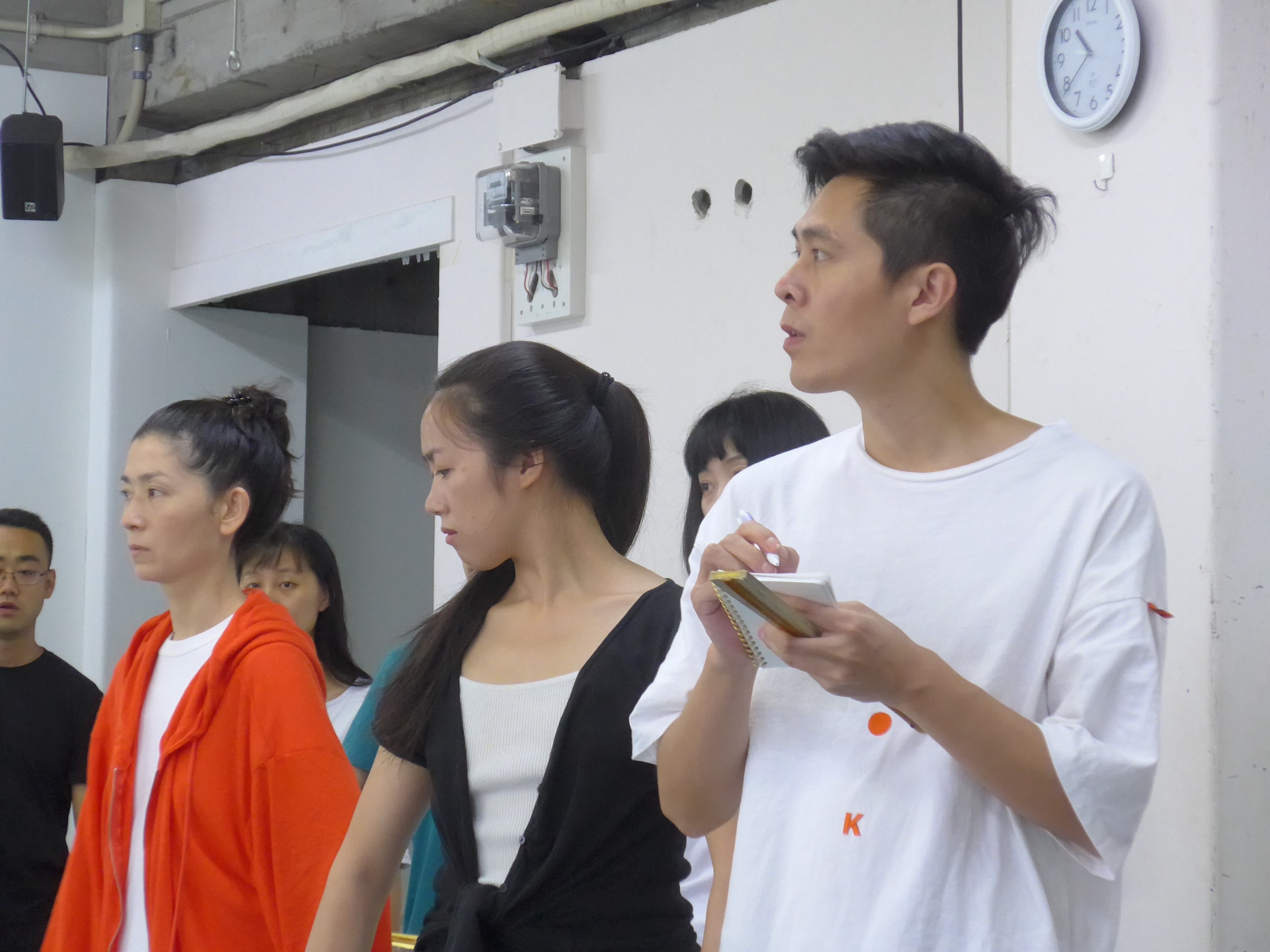
Questions from participants were also exchanged in three languages.
Not only do we differ in language, but we also differ in the environments and cultural backgrounds in which we were born and raised, which leads to different perceptions and impressions. Nevertheless, the questions asked by the participants were on point, and I could sense their eagerness to absorb everything.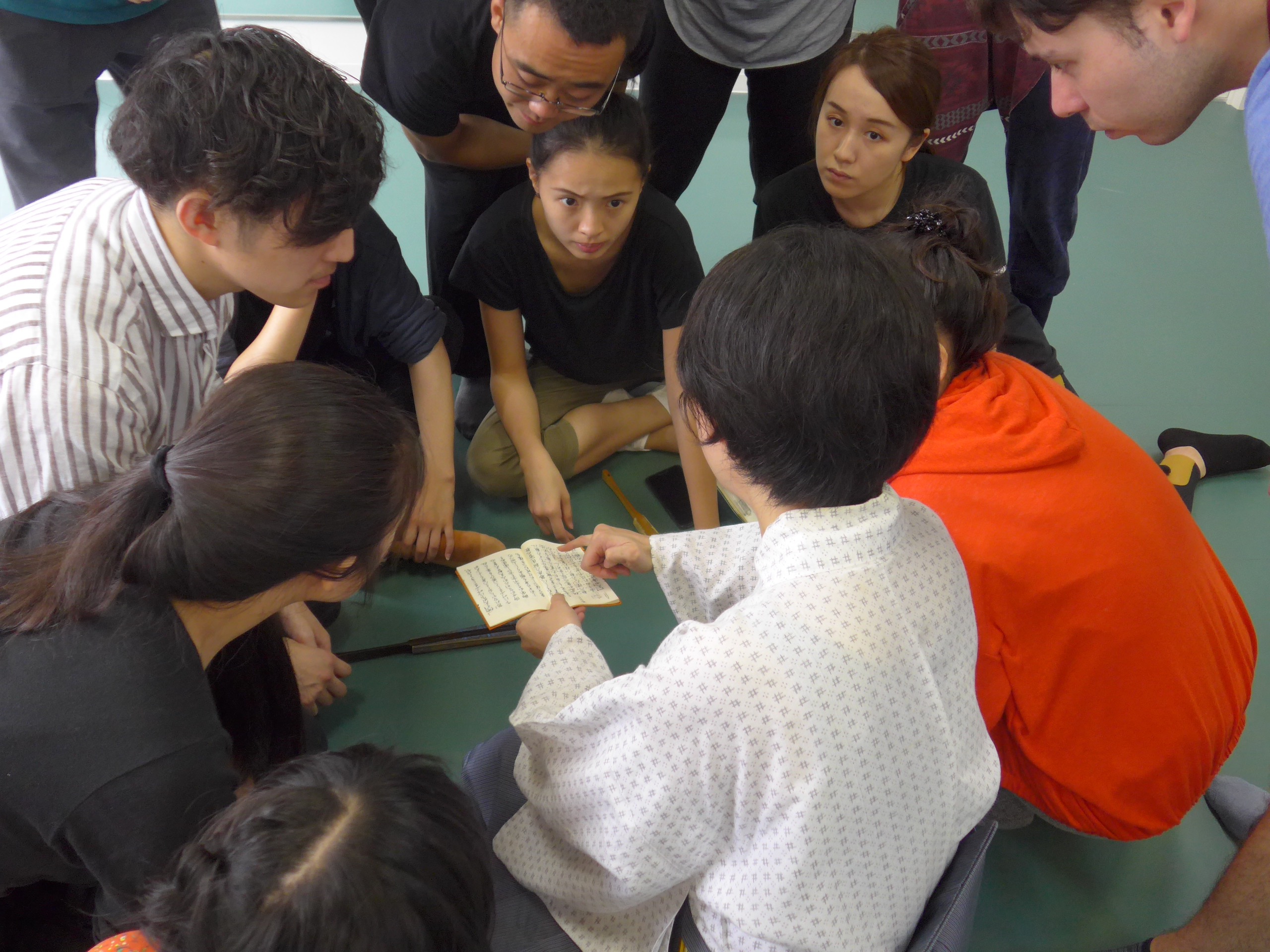 At the end, everyone sings a passage from "Yang Guifei."
At the end, everyone sings a passage from "Yang Guifei."
Although they were told to "first try to imitate it out loud even if you don't understand the meaning," it seems that the unique intonation of the chant piqued the curiosity of the participants. When Uzawa took out his own chant book, everyone peered at it with great interest, and a lively discussion ensued. The excitement was so great that it exceeded the allotted time.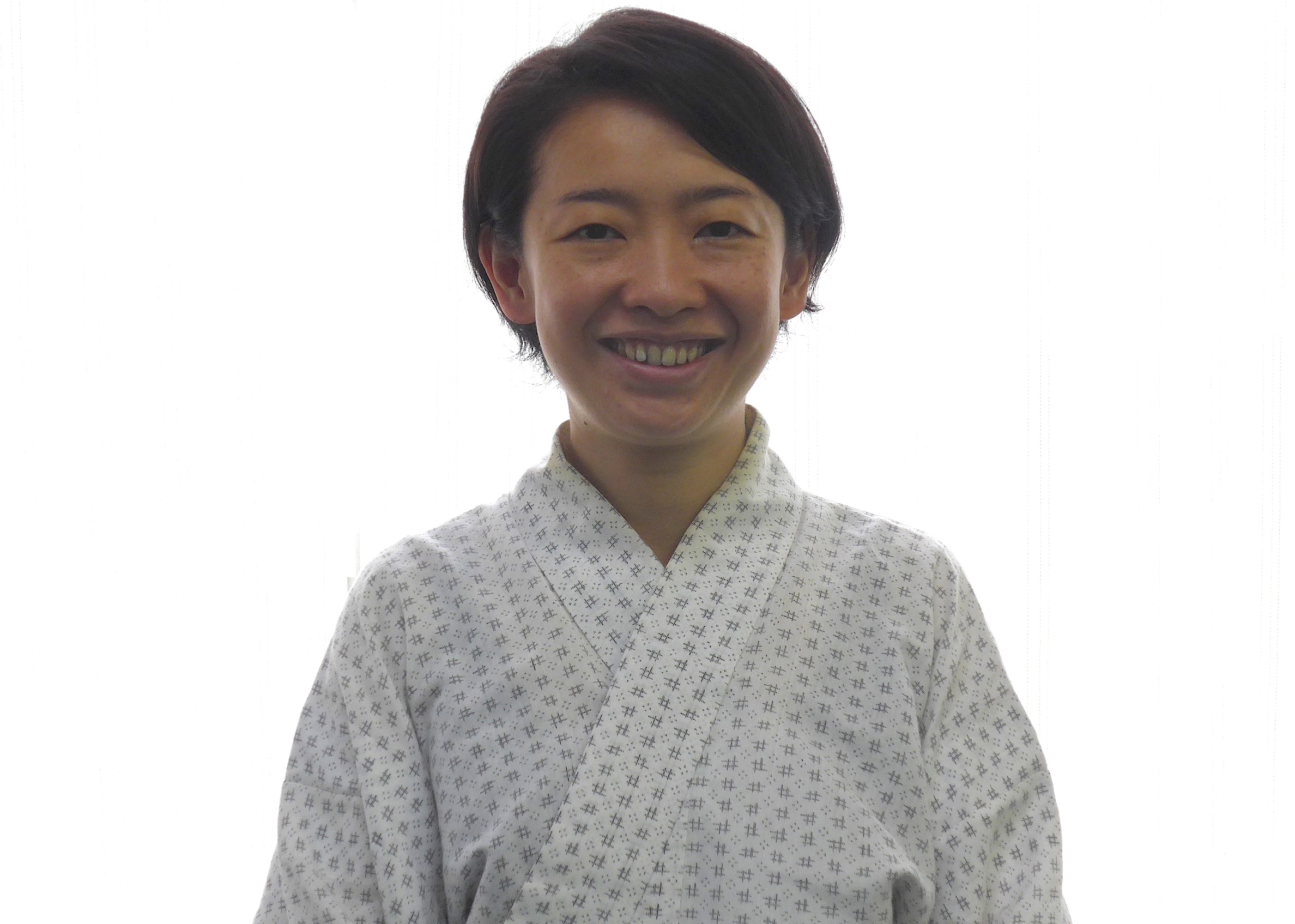
"Today's goal was to simply convey the 'forms,' but at the end, questions delved into the theatricality of Noh were flying around. It was a lot of new information for me, and it was fun. There's only so much you can convey in two hours, so I'd like to have a long discussion with them over a meal," said Uzawa.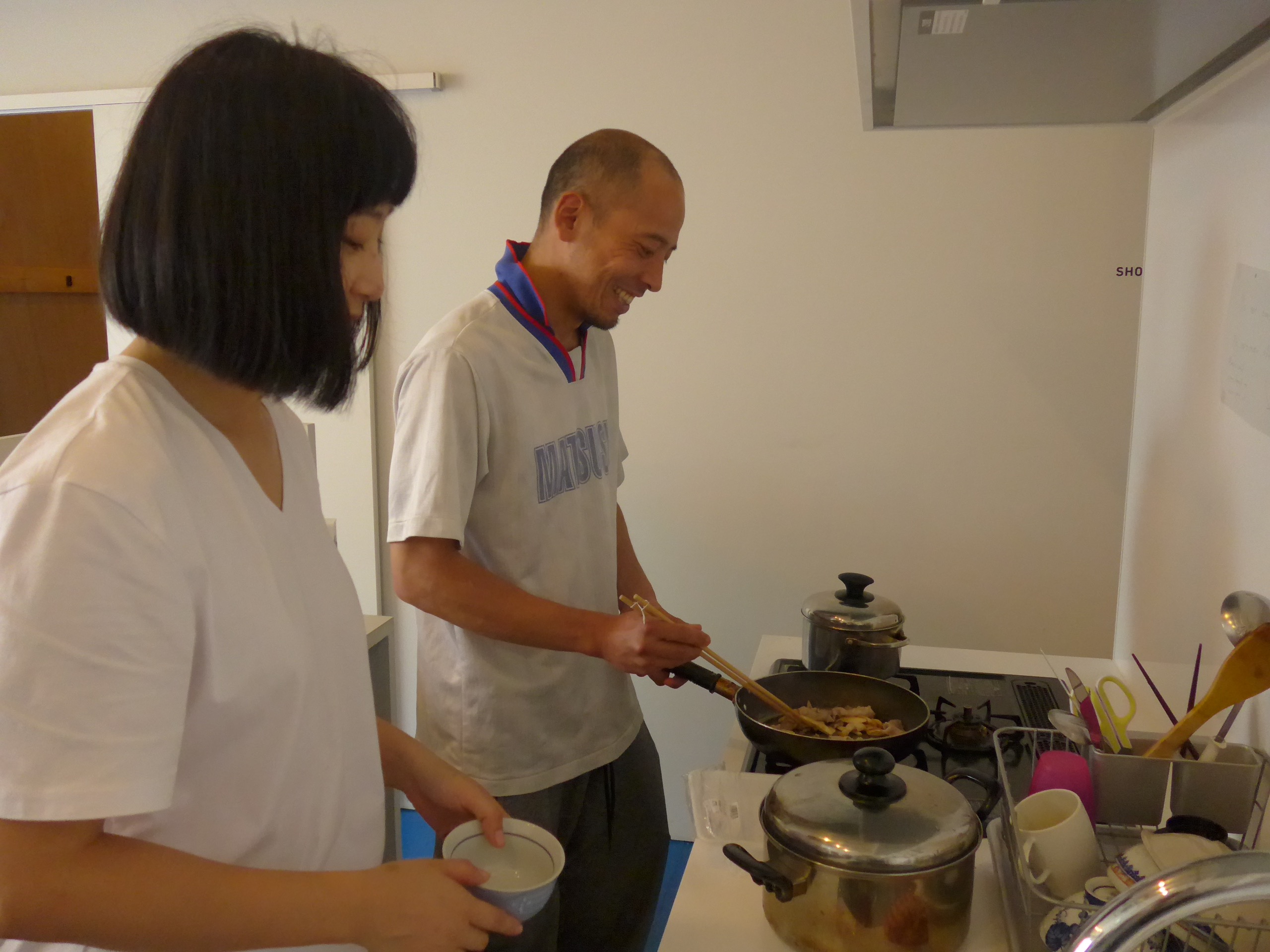
In stark contrast to the heated atmosphere of the rehearsal room, this is lunchtime in the shared lounge. We spoke to Takayoshi Terakoshi (an actor participating in the event) who was preparing lunch.
"I've participated in workshops with foreign directors before, but this is the first time I've experienced such an exotic feeling. I couldn't communicate at all, and it was pretty stressful until about the second day (laughs). But there's no doubt that each of us has a long career. We'll be combining everyone's personalities to create one work, so it should be interesting."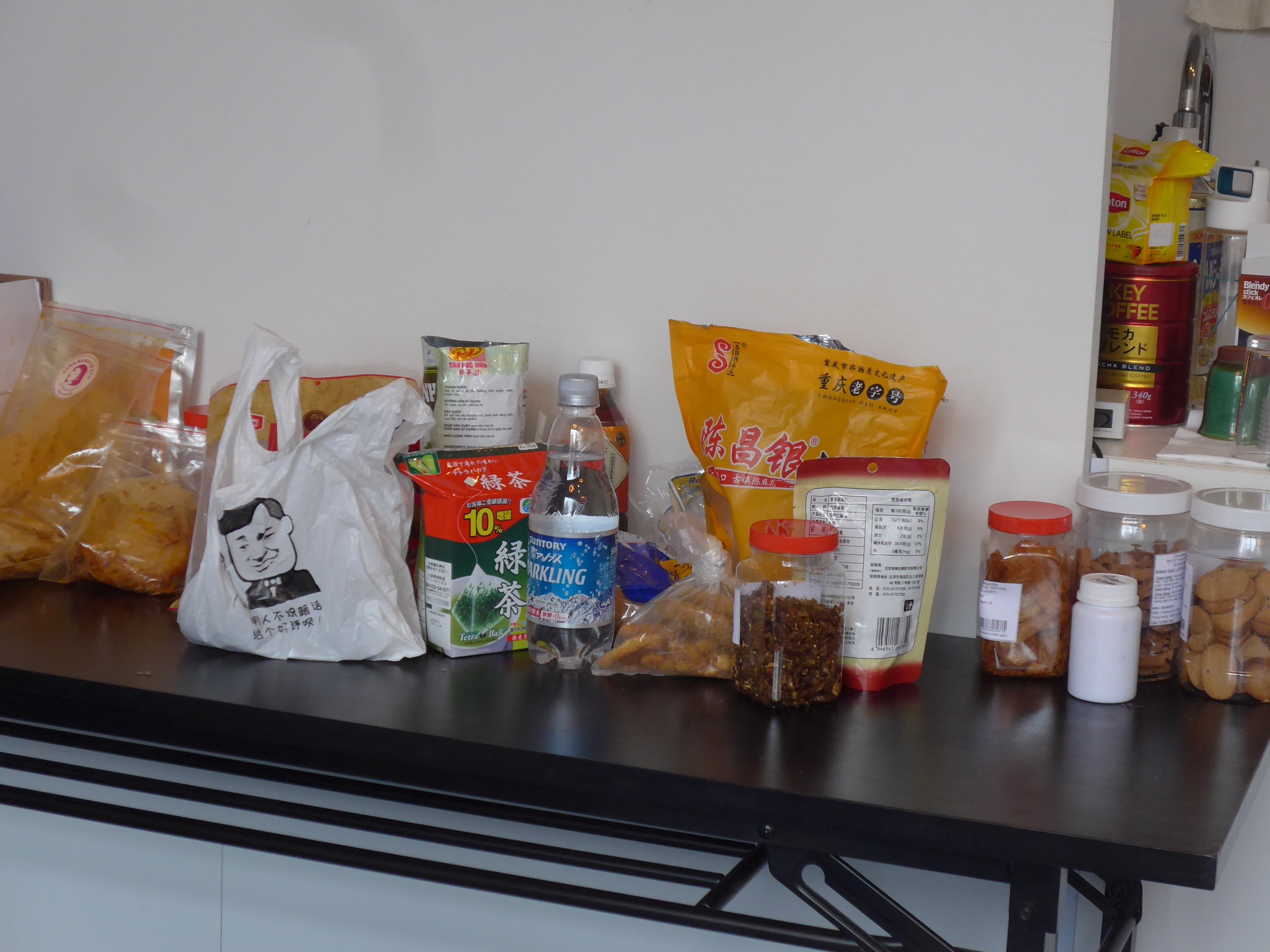 In one corner of the lounge, there is a pile of "souvenirs" brought from each region. It seems that passionate discussions on theater are taking place here every night. Looking at the sweets packaging, I tried to imagine the variety of languages that are spoken there.
In one corner of the lounge, there is a pile of "souvenirs" brought from each region. It seems that passionate discussions on theater are taking place here every night. Looking at the sweets packaging, I tried to imagine the variety of languages that are spoken there.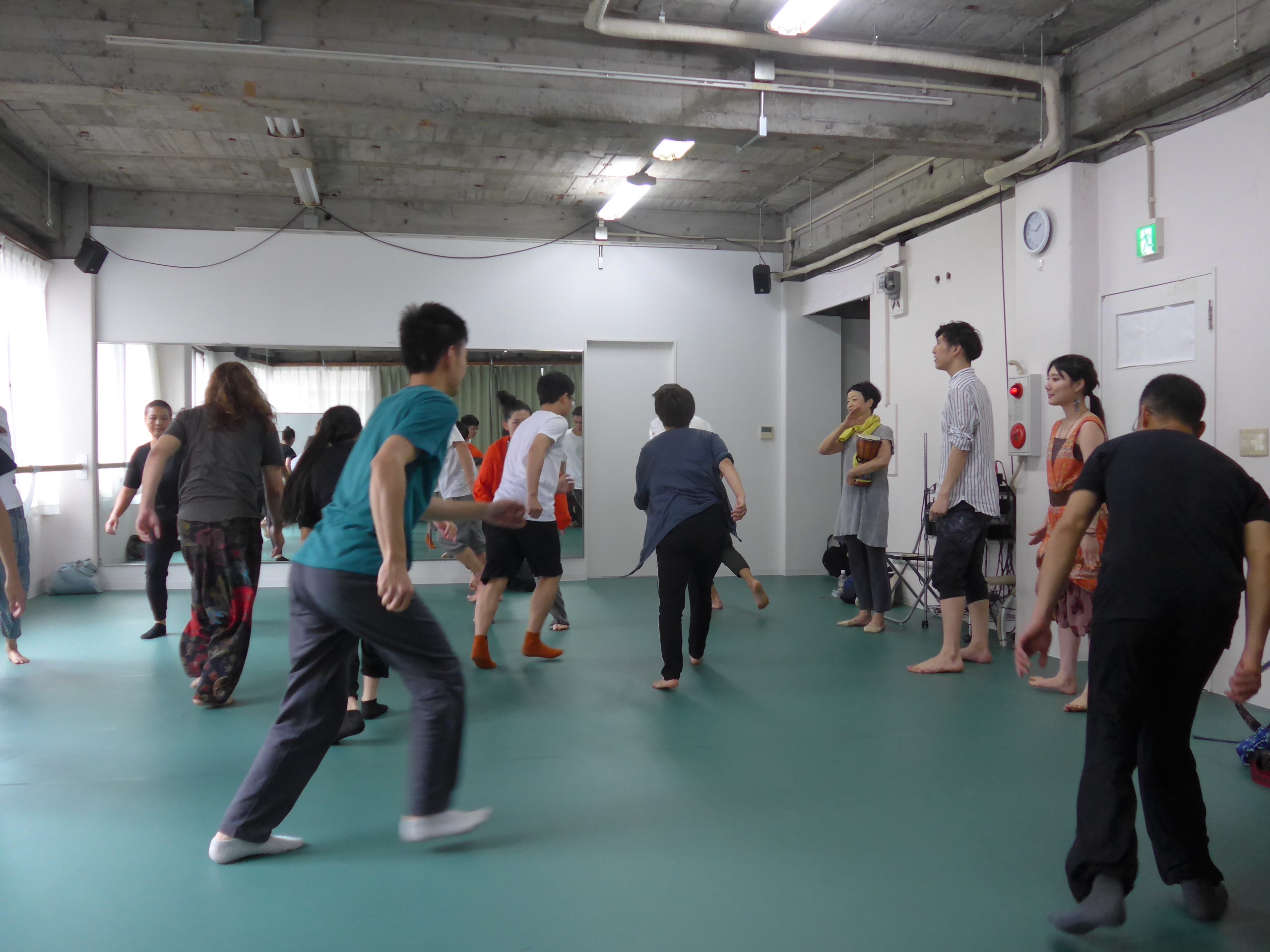
In the afternoon, there will be a dance workshop led by dancer Keiko Takeya.
Training to move every joint and muscle in the body is essential for performers. The ability to sense each other's presence and create space is also essential for creating a work.
The workshop continues. What kind of works will emerge from this collaborative work that transcends the boundaries of language, customs, generations, genres, tradition and modernity?
I want to find out the answer when the curtain rises on the play soon.
This event has ended.
Wharf Workshop 2019 [People who attended]
■Date and time: August 2, 2019 (Fri) 19:00 / 3rd (Sat) and 4th (Sun) 14:00
■ Venue: Wakabacho Wharf
■Ticket prices: Advance tickets 3,500 yen / Same-day tickets 4,000 yen
■Inquiries: 045-315-6025 (Wakabacho Wharf)
